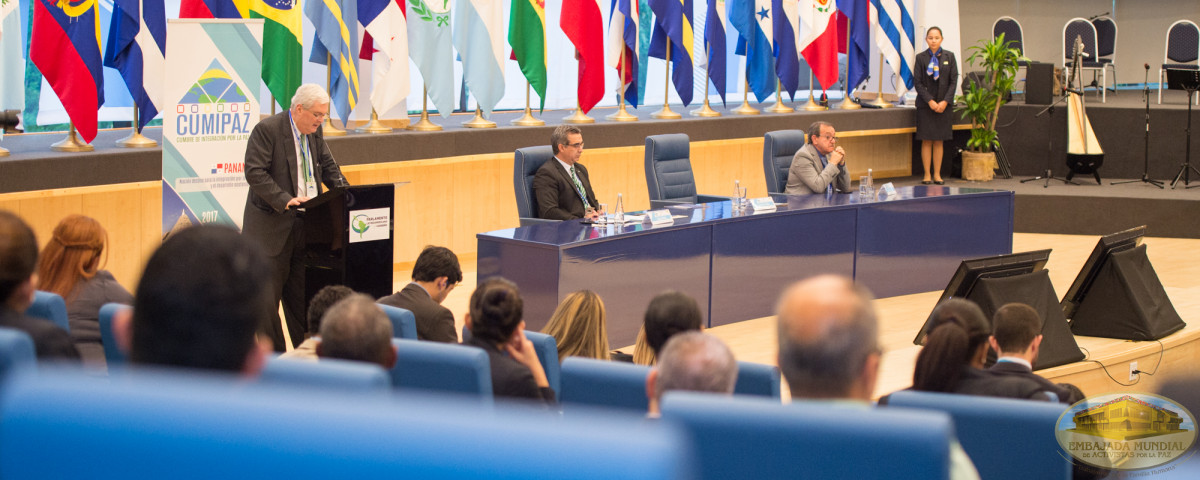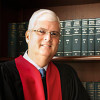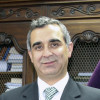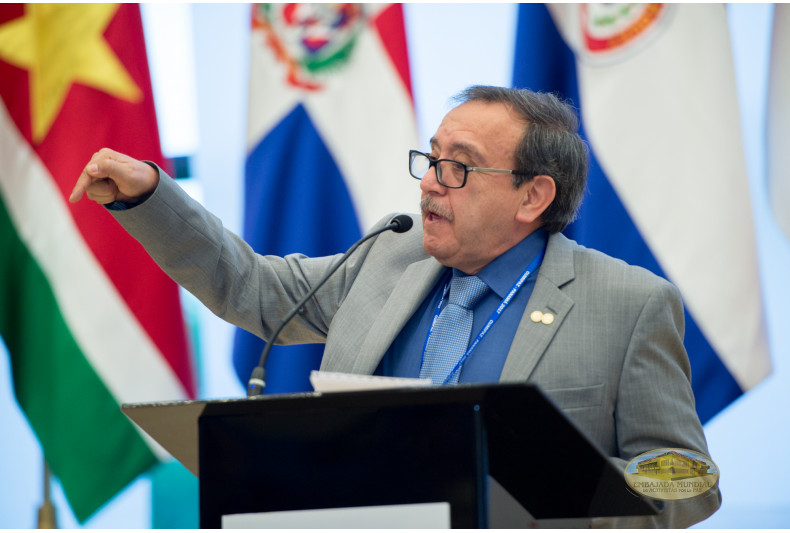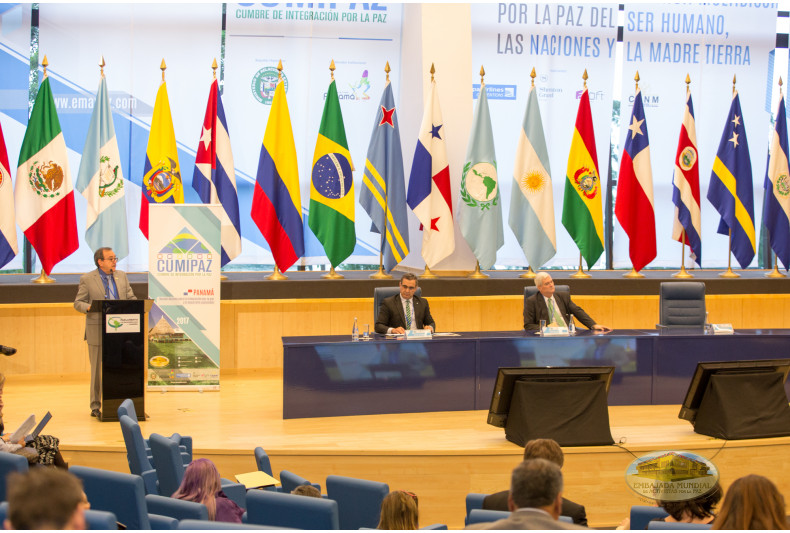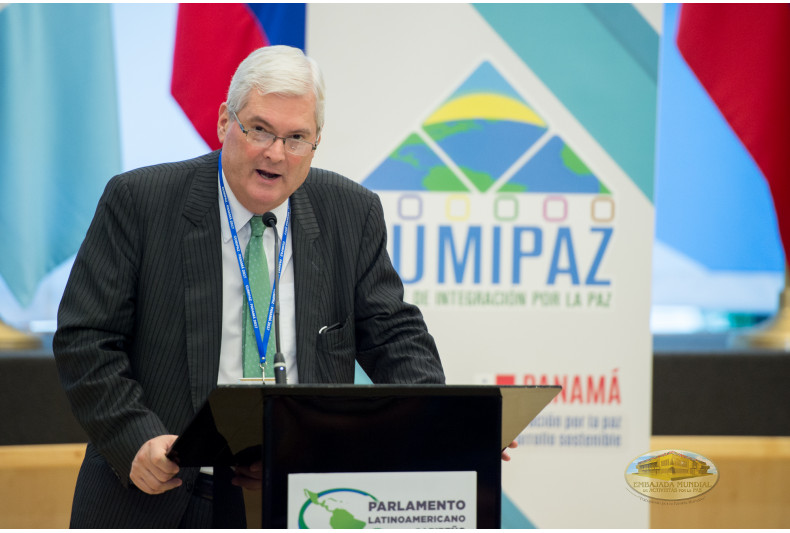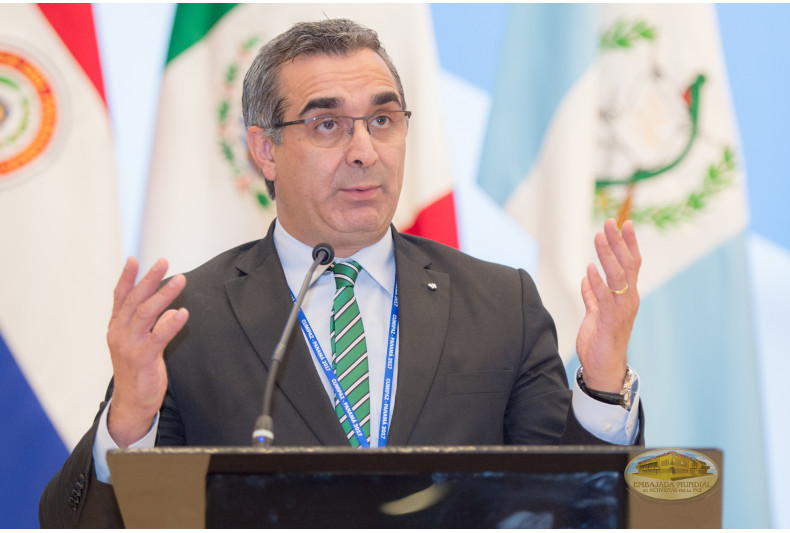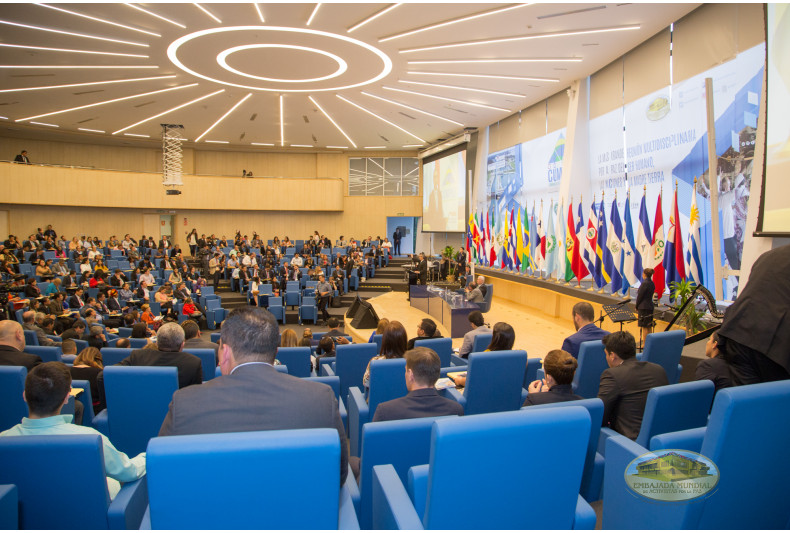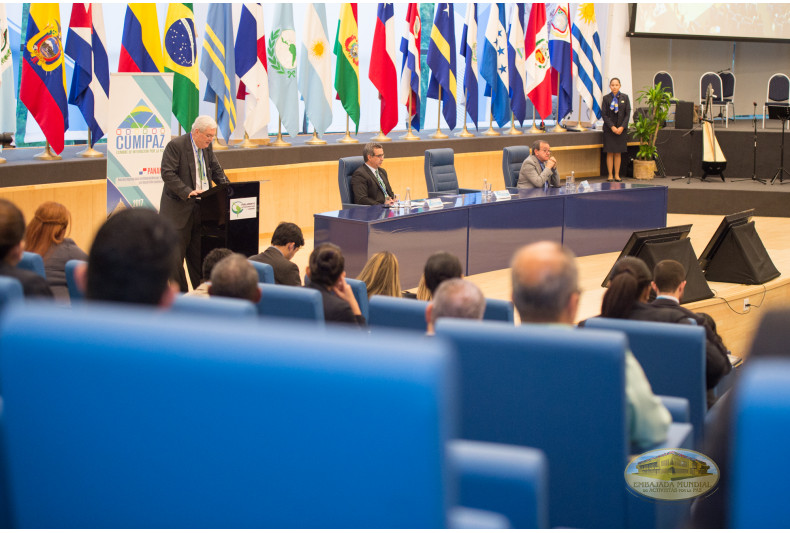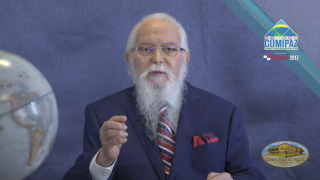Magistrates promote recognition of human rights
See GalleryAt the Peace Integration Summit CUMIPAZ 2017-Panama, judges and magistrates from different countries discussed human rights at the Justice and Democracy Session held at the Parlatino.
Luis Vargas Silva, commissioner of the Inter-American Commission on Human Rights (IACHR); Manuel Ventura Robles, ex-judge of the Inter-American Court of Human Rights; and Gustavo Jalkh Röben, president of the Superior Council of the Judiciary of Ecuador, were the exhibitors of this judicial activity.
In order to create awareness of the need to strengthen the autonomy, independence and effectiveness of national and international justice for the prosecution of international crimes and serious violations of human rights, the meeting was held before legal professionals, academics, professors and students.
What can war leave? What can confrontations leave?
"Pain, blood, death, suffering, that is the only thing that one gains with confrontations," said Luis Vargas, commissioner of the IACHR, in his conference "The Aftermath of Wars: Forced Displacement."
He said that the role played by the courts in conflicts and post-conflict, no matter how judicial efforts are applied, if war continues, nothing will serve the efforts of the judges.
Regarding the issue of forced displacement, he spoke about the Judgment of Trustees 025 of 2004 (Colombian case), asserting that it is the most important sentence that has been handed down in terms of human rights protection. He explained that the Court ended by solving a situation that concerned 1,382,000 displaced victims.
He also spoke about the case of "the untouchables" in India, and Guatemala, which claimed that he suffered one of the major violations in the continent; noted the situation of women who are sexually assaulted.
Commissioner Vargas said:
"Forced displacement is thus one of the greatest problems left by wars. Let us always try as much as we can, to seek reconciliation, agreements, respect for difference ... All we have left is to work for peace."
Universal Jurisdiction and Human Rights
Manuel Ventura Robles, former judge of the Inter-American Court of Human Rights, presented the conference "Universal Jurisdiction and Human Rights", in this regard:
"By attacking humanity as a whole, principles transgressing in territories, cultures and state sovereignties are violated; in this process of internationalization of justice today, the rational conception of preserving the dignity of human beings, which must be considered in itself beyond the cultural and legal categories of state, nationality, territory, ethnicity, race , borders or religion."
Ventura indicated that the complementary role of the International Criminal Court in relation to national courts is the investigation and prosecution of international crimes and is intended to put pressure on States to judge in their own right; said that this strengthens the fight against impunity.
He stressed that in the evolutionary process of universal jurisdiction, the awareness and action of civil society, which is increasingly clear about the importance of suppressing these crimes in a global manner, has been very important, without this detracting from the sovereign integrity of the states.
System of measurement of judicial independence: more than a privilege, a citizen right
"There is no justice of universal jurisdiction without proper functioning of integral justice at the national level in each of its values and by also attending, in an absolute way, the access to justice."
This was expressed by Gustavo Jalkh Röben, president of the Superior Council of the Judiciary of Ecuador.
He referred to judicial independence from the current challenge, which could be measurable, tangible, practical and functional for citizens; said that this cannot be just an abstract discussion.
"If we talk about justice we have to talk about peace and democracy. We all know this phrase of Martin Luther King that has some variants, but that in essence is this: True peace is not simply the absence of violence, it is the presence of justice," he said.
He also said that the justice system has to offer citizens the possibility of accessing an agile and effective service, which solves problems and attends to their rights, so that people feel part of society.
